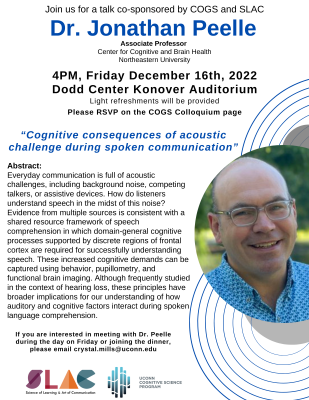The Institute for the Brain and Cognitive Sciences (IBACS) is inviting graduate students to apply for theIBACS-BIRC Research Assistantships in Neuroimaging (IBRAiN) Program. These graduate assistantships are for 10 hours per week during the Fall (2023) and Spring (2024) semesters at the Brain Imaging Research Center (BIRC). During the first year, assistants will be trained in neuroimaging methods, data science, and reproducibility. Assistants will spend the remaining allocated hours at BIRC, supporting users of BIRC facilities. This could involve helping design and implement experimental procedures for fMRI, EEG, TMS etc., recruitment and prepping of participants, data analysis, or overseeing use of equipment by others. Applicants will be expected to commit to the full duration of the assistantship (Fall & Spring). Funds may be available during Summer 2024 to enable IBRAiN students to pursue their own research at BIRC. IBRAiN students also receive an allocation of 20 hours of resource time to be used at BIRC during the course of the fellowship.
Up to three students will be supported in the 2023-2024 cycle. Students will participate in common training activities, but will primarily specialize in one of three roles at BIRC. Applicants should indicate which role(s) they wish to be considered for.
1. Research software engineer. This role assists researchers in data analysis, particularly functional MRI, using existing software, and engineering and implementing new analytic tools when needed. Qualified candidates will have demonstrated proficiency in Python, MATLAB, or Julia, and Unix like computing environments.
2. User support. This role assists researchers in using BIRC facilities, including experimental design and setup, equipment training, data management, and maintaining documentation resources. Qualified candidates will have prior experience in designing and running in-person experiments. Familiarity with Python or MATLAB is preferred.
3. MR Operator. This role assists researchers in obtaining functional and structural MRI data by learning how to operate the Siemens Prisma 3T MRI Scanner to perform brain research studies. Qualified candidates will have demonstrated an understanding of MRI safety, a high level of reliability, and the ability to work with participants across the lifespan.
The deadline for receipt of applications will be midnight on Friday, February 24, 2023
Subject to funding constraints, these assistantships could be renewed for a further year. Please refer to the full details and access the application on our IBRAiN webpage.
If you have any questions, please contact the Institute Coordinator, Crystal Mills at crystal.mills@uconn.edu.



